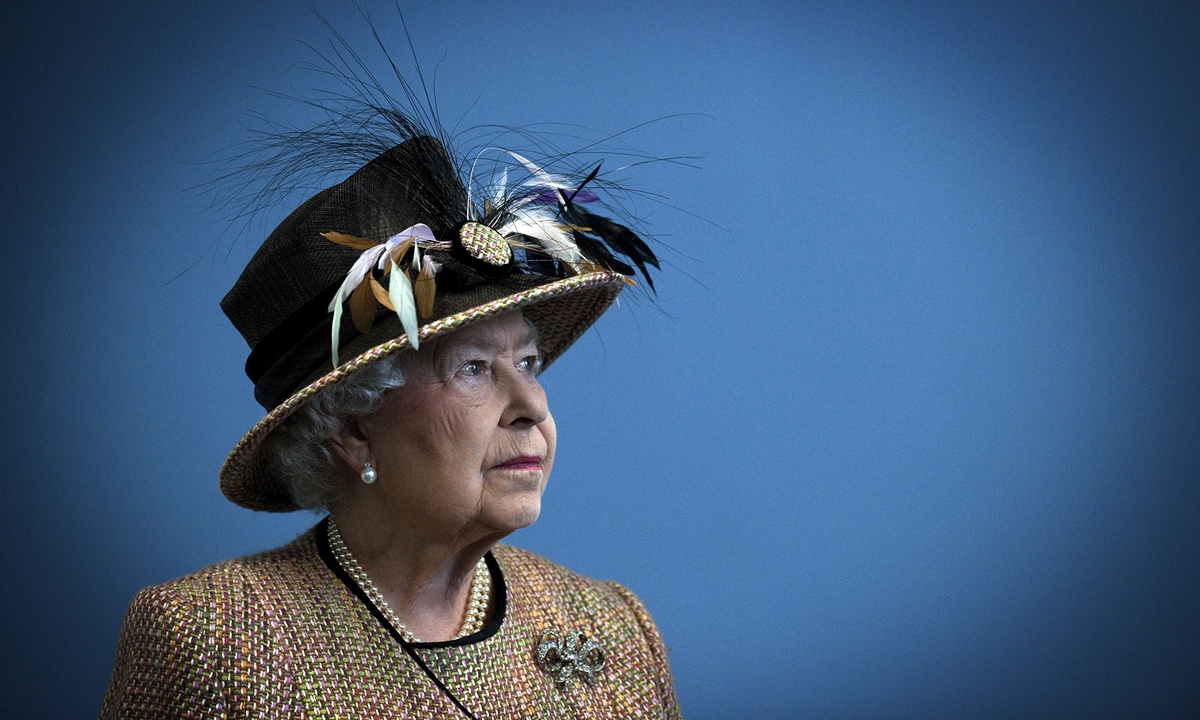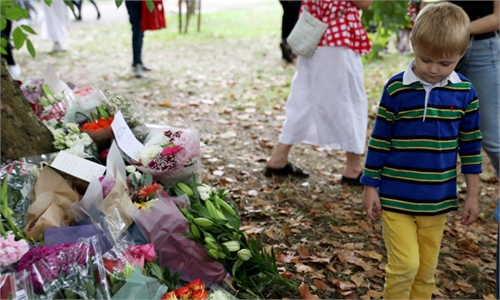Legacy of British colonialism will drag on long after Queen Elizabeth II

Queen Elizabeth II Photo: CFP
In the past few days, many video images of Queen Elizabeth II have appeared on Chinese social media. In those images, the Queen is elegant and regal, with an extraordinary legacy, but these are not the whole story of the Queen and the monarchy.To people in many former colonial countries, the Queen and the brutal exploitation and plundering of colonies in Asia, Africa and Latin America by the British Empire she represents, are also an inseparable part of the story.
Since the British are willing to see the Queen as a national symbol of Britain, she and the royal family must bear the brunt of criticism from the other side of what this symbol represents - the legacy of colonialism.
Some experts studying the British constitutional monarchy claim that British civilization is the origin of modern civilization. But this claim avoids the key issue that the long period of colonial expansion beginning with this point of origin did not result in a glorious civilizational performance. At the very least, it could not have been the point of origin that former colonial powers had to follow in order to move toward modern civilization.
The British monarchy was central to the establishment, expansion and maintenance of the British Empire.
The British king was noble, but that nobility was accumulated by plunder and sustained by the brutal exploitation of colonies. Even the jewels on the crowns of the Queen and the royal family were forcibly taken.
On both of my trips to Kenya, local friends told me the story of the Queen, who visited the British colony of Kenya with Philip on Jan. 31, 1952, where she was informed of her father's death. The crown fell on her head.
Eight months later, in Kenya, a massacre began.
British colonial authorities brutally suppressed the Mau Mau uprising, an anti-colonial movement in Kenya. After Elizabeth II's death, people were asking why the Queen had remained silent about the massacre.
In March, William Prince of Wales and Princess Kate traveled to the Caribbean to celebrate the Queen's Platinum Jubilee (70 years on the throne). In an open letter, more than 100 public figures in Jamaica said, "We see no reason to celebrate 70 years of the ascension of your grandmother to the British throne because her leadership, and that of her predecessors, have perpetuated the greatest human rights tragedy in the history of humankind."
As the people of the former colonial countries continue to awaken, the grace and benevolence shown by Elizabeth II in her visits around the world is more like a condescending "favor" from the "white savior."
Elizabeth II was both a representative of the civilized image of the British Empire and a symbol of the noble rank of Western civilization. Her influence and that of her royal family included a perceived legacy of colonialism, particularly the division of civilization into different classes, which still severely constrains the development of former colonial countries.
Among the legacies that Britain left to the colonies, the most far-reaching was this hierarchical standard of civilization. Chinese scholar Liu He writes in his book "New Paths in Global History Studies" that the civilizational hierarchy shaped by Europeans and Americans "was not strict at first, but it slowly stabilized over centuries of evolution and change".
By the beginning of the 19th century, it had become a classic discourse, codified in the principles of international law, written into political geography textbooks, embedded in the unequal treaties that European countries signed with other countries, and finally formed the basis of European and American understanding of the world."
Queen Elizabeth II was crowned in 1953, at the age of 27. The Empire that she took over was by this time beginning to step into the afterglow of the setting sun.
Seventy years later, her departure may mark the end of an era. But the long tune of the empire will never come to an abrupt end, it will drag on a residual sound to accompany us into a new era.
The author is a senior editor with People's Daily, and currently a senior fellow with the Chongyang Institute for Financial Studies at Renmin University of China. dinggang@globaltimes.com.cn. Follow him on Twitter @dinggangchina



